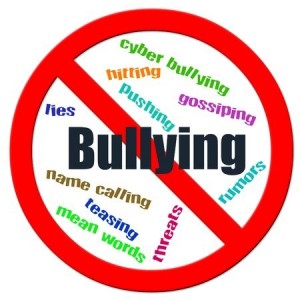By Rose O. Sherman, EdD, RN, FAAN
 Nurse bullying (also referred to as horizontal or lateral violence) continues to be a problem in many health care settings including emergency departments. Last week, I presented at an Emergency Nurse’s Association leadership conference in Phoenix and had an opportunity to visit the many posters on display. An ED nurse from Hanover Hospital in Pennsylvania had done an interesting study looking at the correlation between emotional intelligence and lateral violence. Her results indicated that the higher a nurse’s emotional intelligence and the lower the likelihood that she would participate in the bullying of another staff member.
Nurse bullying (also referred to as horizontal or lateral violence) continues to be a problem in many health care settings including emergency departments. Last week, I presented at an Emergency Nurse’s Association leadership conference in Phoenix and had an opportunity to visit the many posters on display. An ED nurse from Hanover Hospital in Pennsylvania had done an interesting study looking at the correlation between emotional intelligence and lateral violence. Her results indicated that the higher a nurse’s emotional intelligence and the lower the likelihood that she would participate in the bullying of another staff member.
Intuitively, this does not seem surprising. Yet, the researcher told me that she could not find any other studies in the literature that looked at the relationship between these two variables. This work could be the beginning of designing a more effective intervention to stop bullying. It can be difficult for nurses to see this bullying behavior in themselves, and challenging for nurse leaders to change a toxic culture. Approaching the problem through the lens of building emotional intelligence could be an interesting strategy.
Why Emotional Intelligence (EI) May Be the Key to Better Staff Relationships
Emotional intelligence (EQ) can be described as self-mastery or the ability to understand and control what we feel (our emotions) and the way we act (our response to these emotions). It is about self-awareness, self-management, social-awareness and relationship management. The definitions of these components are as follows:
- Self-awareness – You recognize your own emotions and how they affect your thoughts and behavior, know your strengths and weaknesses, and have self-confidence.
- Self-management – You’re able to control impulsive feelings and behaviors, manage your emotions in healthy ways, take initiative, follow through on commitments, and adapt to changing circumstances.
- Social awareness – You can understand the emotions, needs, and concerns of other people, pick up on emotional cues, feel comfortable socially, and recognize the power dynamics in a group or organization.
- Relationship management – You know how to develop and maintain good relationships, communicate clearly, inspire and influence others, work well in a team, and manage conflict.
Emotional Intelligence (EI) can be Strengthened
This is not always easy to do in high stress environments but nurses who are sensitive to the feelings of others are less likely to be bullies. The good news is that nurses can become more emotionally intelligent by working on the following skills:
- The ability to quickly reduce stress in the moment in a variety of settings
- The ability to recognize your emotions and keep them from overwhelming you
- The ability to connect emotionally with others by using nonverbal communication
- The ability to use humor and play to stay connected in challenging situations
- The ability to resolve conflicts positively and with confidence
These are skills that are worth teaching in the workplace. Education can start with a self-assessment of one’s own emotional intelligence using one of the many tools that are available. An individualized plan to strengthen one’s EI can then be developed. This could be a win-win for the individual staff member and others in the work setting. Potentially, it can also help eliminate or decrease bullying and build a healthier work environment.
Read to Lead
Goleman, D. (1995). Emotional intelligence. New York: Bantam
Helpguide.org Website Emotional Intelligence: Key Skills for raising emotional intelligence.
© emergingrnleader.com 2014


 LinkedIn
LinkedIn Instagram
Instagram